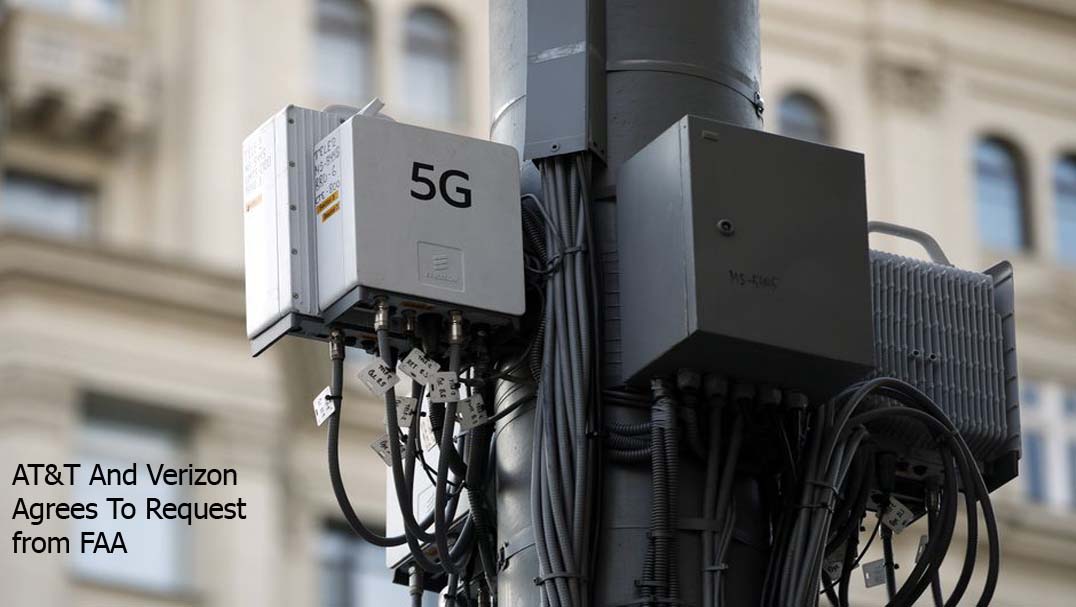AT&T and Verizon agrees to request from FAA to delay their 5G expansion plans by two weeks. Both companies have planned to roll out their proposed C-band airwaves this new week which has promised to improve the speed and coverage of their 5G networks.

AT&T And Verizon Agrees To Request from FAA
Verizon and AT&T have consented to defer the sendoff of their overhauled and newly improved 5G networks for a considerable length of time(two weeks to be precise), bowing to tension from the Federal Aviation Administration, the airline organizations, and Transportation Secretary Pete Buttigieg.
The two countrywide carriers were relied upon to start off the update of their 5G networks with the alleged C-band range on Jan. 5. The radio wireless transmissions, which the carriers spent a consolidated $70 billion securing last year, were ready to give a major lift to their 5G speed and coverage. All things considered, they will hold off later at first telling the FAA they would disregard the solicitation.
Verizon’s Response to the News
A spokesperson from Verizon, Rich Young in an emailed statement said, “We’ve agreed to a two-week delay which promises the certainty of bringing this nation our game-changing 5G network in January delivered over America’s best and most reliable network,”
AT&T’s Response
“At Secretary Buttigieg’s request, we have voluntarily agreed to one additional two-week delay of our deployment of C-Band 5G services,” in an emailed statement, AT&T said. “We also remain committed to the six-month protection zone mitigations we outlined in our letter. We know aviation safety and 5G can co-exist and we are confident further collaboration and technical assessment will allay any issues.”
The about-face fights off a legitimate conflict pitting the FAA, the aviation industry, and the Transportation Department on one side, and the carriers and the Federal Communication Commission, which approved the utilization of the wireless transmissions.
The avionics business had been forcing the transporters to defer their C-band 5G support of guarantee signal discharges wouldn’t affect instruments essential for mid-flight routes. It’s hazy what moves will be made in the fourteen-day time frame to address these worries from the FAA and aviation industry.
AT&T and Verizon Wins FCCs Auction
The carriers had won FCC closeouts to utilize frequencies from 3.7 to 3.98GHz to use for their updated 5G assistance, however, the flight industry contended those radio wireless transmissions might collaborate with instruments like altimeters that utilized the 4.2 to 4.4GHz territories.
While carriers vowed in December to stand by 30 days until Jan. 5 to give the business more opportunity to adjust, Buttigieg and the FAA mentioned another defer just before the cutoff time, which Verizon and AT&T at first dismissed.
Carriers proposed security measures in November to guarantee cell towers don’t obstruct airplane signals, including bringing down tower power levels cross country with considerably stricter cutoff points around air terminals and helipads.
Preceding consenting to the postponement, the transporters proposed to make exceptional rejection zones around air terminals where it wouldn’t send C-Band 5G for a considerable length of time.
When the Companies Agreed To Comply To FCCs Pledges
Both companies have agreed to comply with these voluntary pledges binding and also agreeing to allow the FCC imposes penalties on them in the event that they do not make good on their promises.



